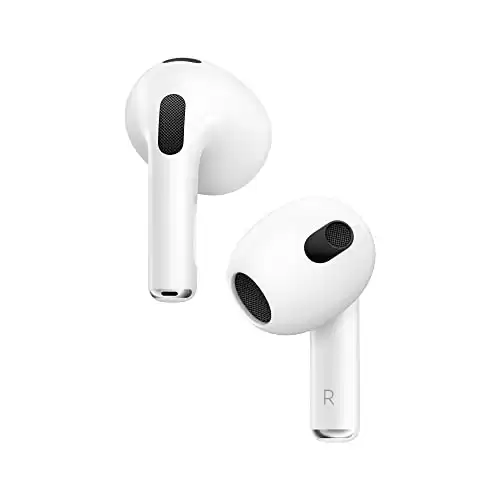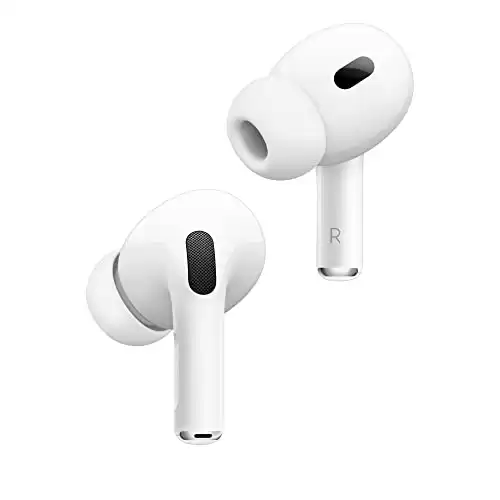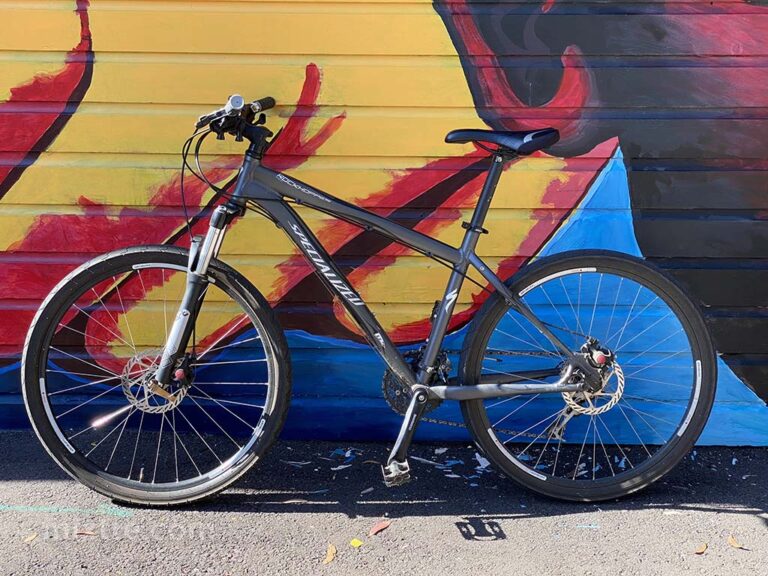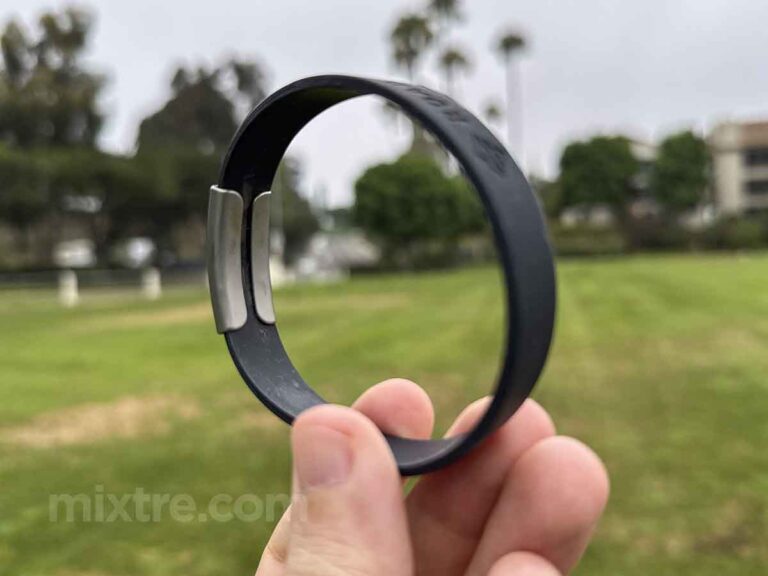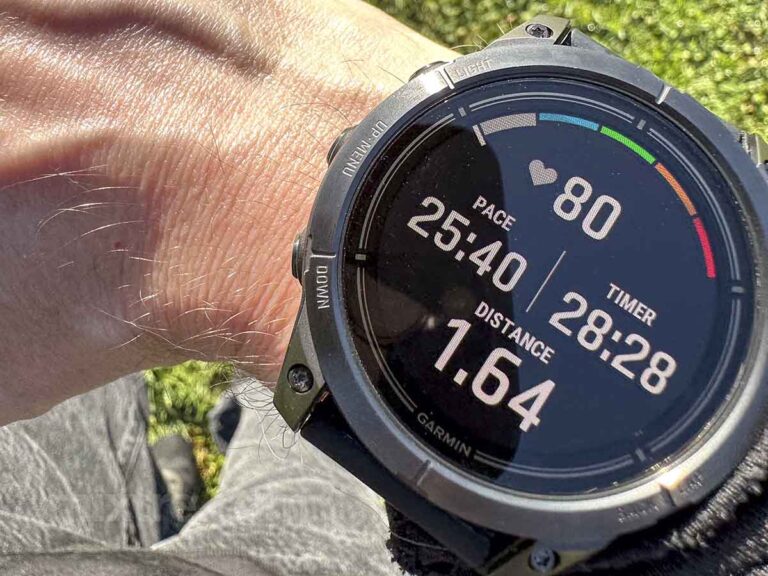I was never a fan of listening to music or podcasts on my bike until I got a pair of wireless earbuds. Cycling with AirPods for the the first time was a game-changing experience.
Don’t worry – although there are risks to wearing headphones while cycling, modern technology makes it safer. Most specifically, the transparency mode on the AirPods Pro allows you to hear ambient background noise without sacrificing the quality of what it is you’re listening to.
You’ll need to be a lot more careful when wearing the regular AirPods though. The only way to actually hear anything is to crank up the volume, which is a pretty good way to end up dead if you ride on busy streets.
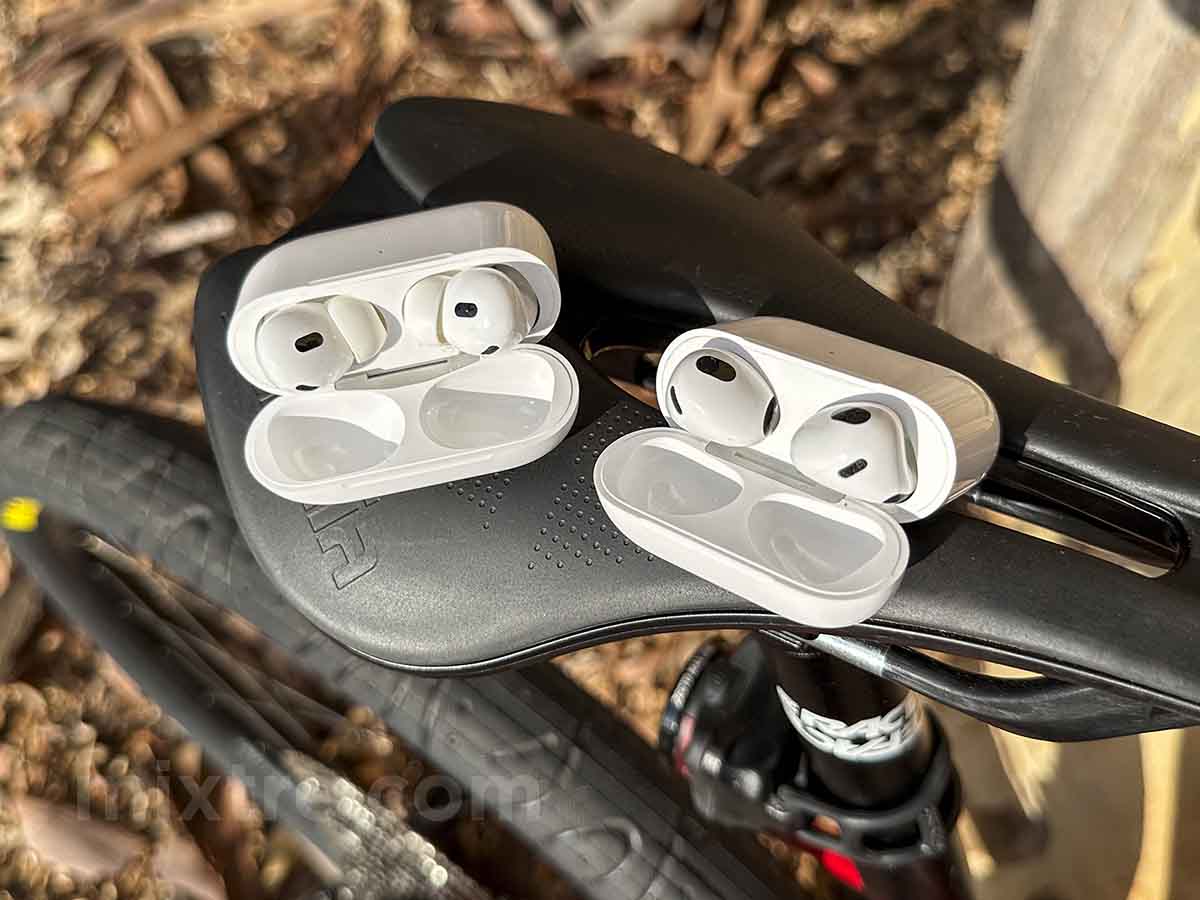
Pros and cons of the regular AirPods for cycling
Wearing the regular version of the AirPods when cycling will likely be a disappointing experience for you. I did it for about a year before I got my AirPods Pro, so I’ve got a lot of things to say about it. Both good and bad:
Pros
- The connection to both my Apple Watch and iPhone has been consistently solid. It never drops the connection. Ever.
- The gesture controls are convenient for skipping tracks and turning up the volume without having to fiddle with my watch or phone.
- Battery life is very good. My longest route at the moment is about two hours long, and the regular version of the AirPods will easily last that long on a single charge.
- They fit nicely in my ear, and they’ve never fallen out accidentally.
Cons
- You’re going to have to turn the volume way up to hear anything, because the regular AirPods don’t block out any ambient noise.
- You will hear lots of wind noise (and car noise, and bird noise, and airplane noise, etc).
- If they don’t fit snuggly into your ears, they will likely fall out easily.
- Consider it a miracle if you can get them to last more than 4 hours at high volume.
- Small size makes them easy to fit under helmet straps
- Extremely reliable wireless connection with an Apple Watch or iPhone (I’ve never had any issues)
- They sound fantastic in low traffic (and low wind) environments
- You’ll never have to worry about the batteries running out (unless you’re psycho and ride all day)
To be honest, it’s the lack of a noise canceling feature which prevents me from wearing my regular AirPods more often on regular bike rides. It’s not like I’m a super fast rider or anything, but wind noise can to be a problem at higher speeds.
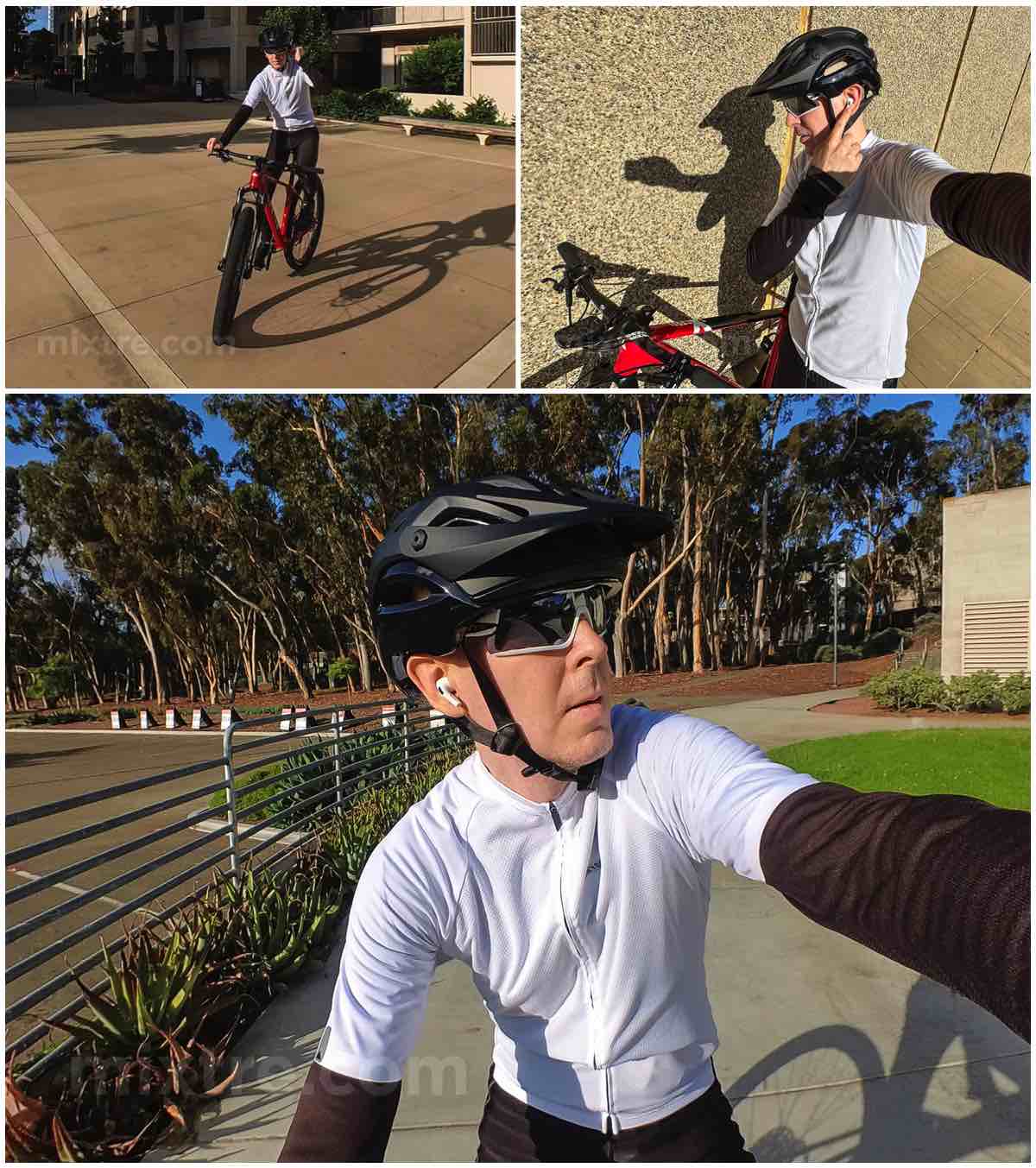
Pros and cons of AirPods Pro for cycling
Spoiler alert: I’m of the opinion that the AirPods Pro are far better than the regular AirPods for cycling. It’s mostly because of the noise cancellation feature, but there are some other things that I like about wearing them while riding a bike:
Pros
- As I just mentioned, noise cancellation is everything. Most of the cycling that I do is on public roads, and the noise from passing cars and trucks is significant. The noise cancellation feature of the AirPods Pro cuts down on that noise significantly.
- The noise cancellation doesn’t block out all sounds (thankfully). I can still hear ambient noise and car traffic very easily with noise cancellation activated.
- I wear an over-the-ear skullcap under my helmet in the winter months, which blocks wind and amplifies the noise canceling feature.
- Being able to access Siri using only my voice is great for turning the volume up and down, as well as changing tracks.
- Battery life is fantastic. It’s slightly better that the regular version of the AirPods IMHO.
Cons
- Although the noise cancellation feature is a must when cycling on a busy road, it’s arguably not the smartest idea to use it. Being able to hear everything around you is important, and blocking out some of that sound is sketchy AF.
- With the noise cancellation feature is turned on, it will sometimes amplify low frequency sounds such as passing trucks. Not always, but sometimes.
- Along the same lines, rubbing your finger (or helmet strap) along either earbud while in noise cancellation mode amplifies the sound of that touch (just enough to be annoying).
- The noise canceling feature is powerful enough to drown out ambient noise in busy urban environments
- Better noise canceling means that you can listen to your audio at lower volumes (which is important for cyclists)
- They sound richer than the regular AirPods with deeper base higher fidelity
- Battery life is excellent – I’ve never run out of juice (even on longer rides)
The fact that I’m not dead (yet) means that the noise canceling feature works pretty well IMHO. I know that I’m going to get a lot of slack admitting that I wear noise canceling headphones while out on bike rides, but it is what it is.
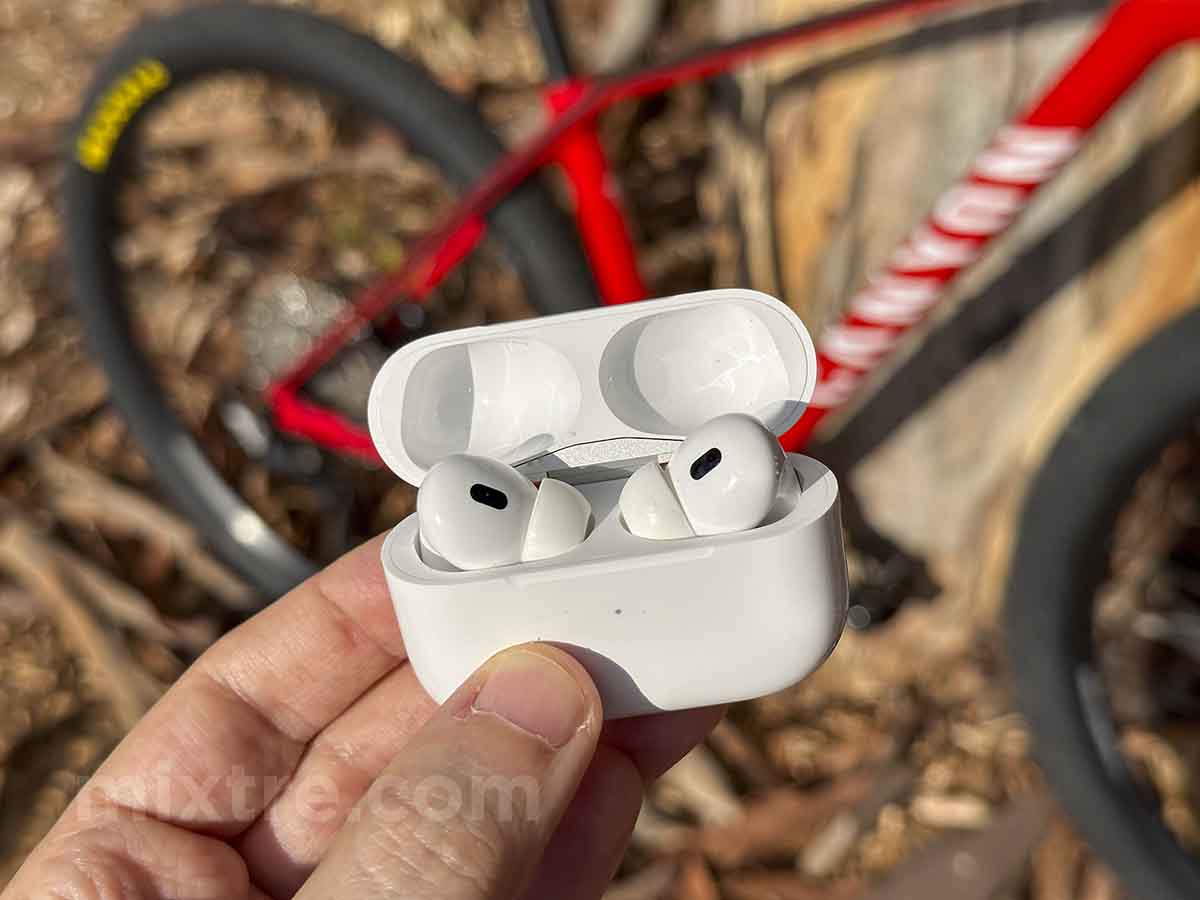
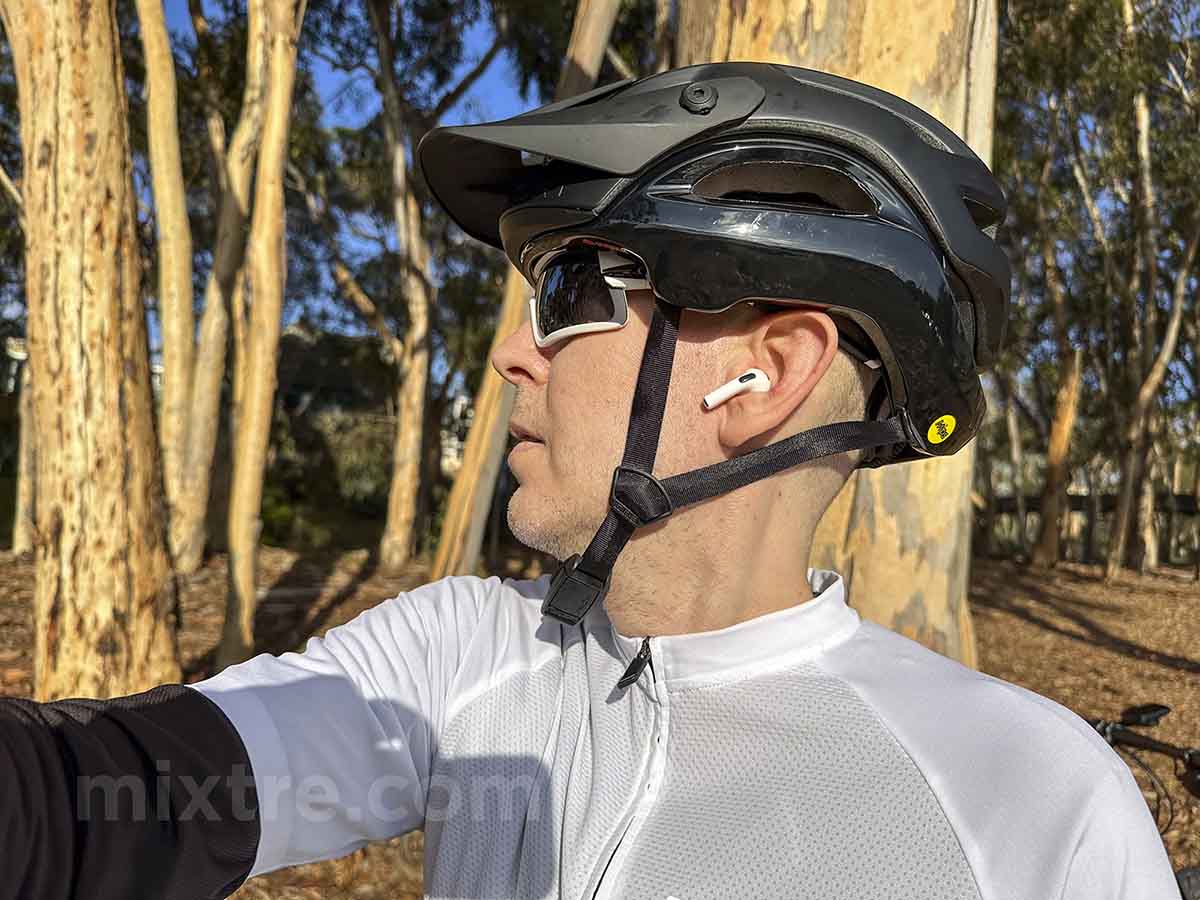
Which is better for cycling: AirPods or AirPods Pro?
For me, and the kind of riding that I do, I prefer the AirPods Pro. Because I ride on public roads, the noise cancellation feature is a must. I wouldn’t be able to hear anything but the noise from passing vehicles without it.
That said, using the regular version of the AirPods is perfectly fine when riding a mountain bike on quiet trails. Being able to hear my music or podcasts is not an issue when I’m out in the middle of nowhere. Unless it’s really windy.
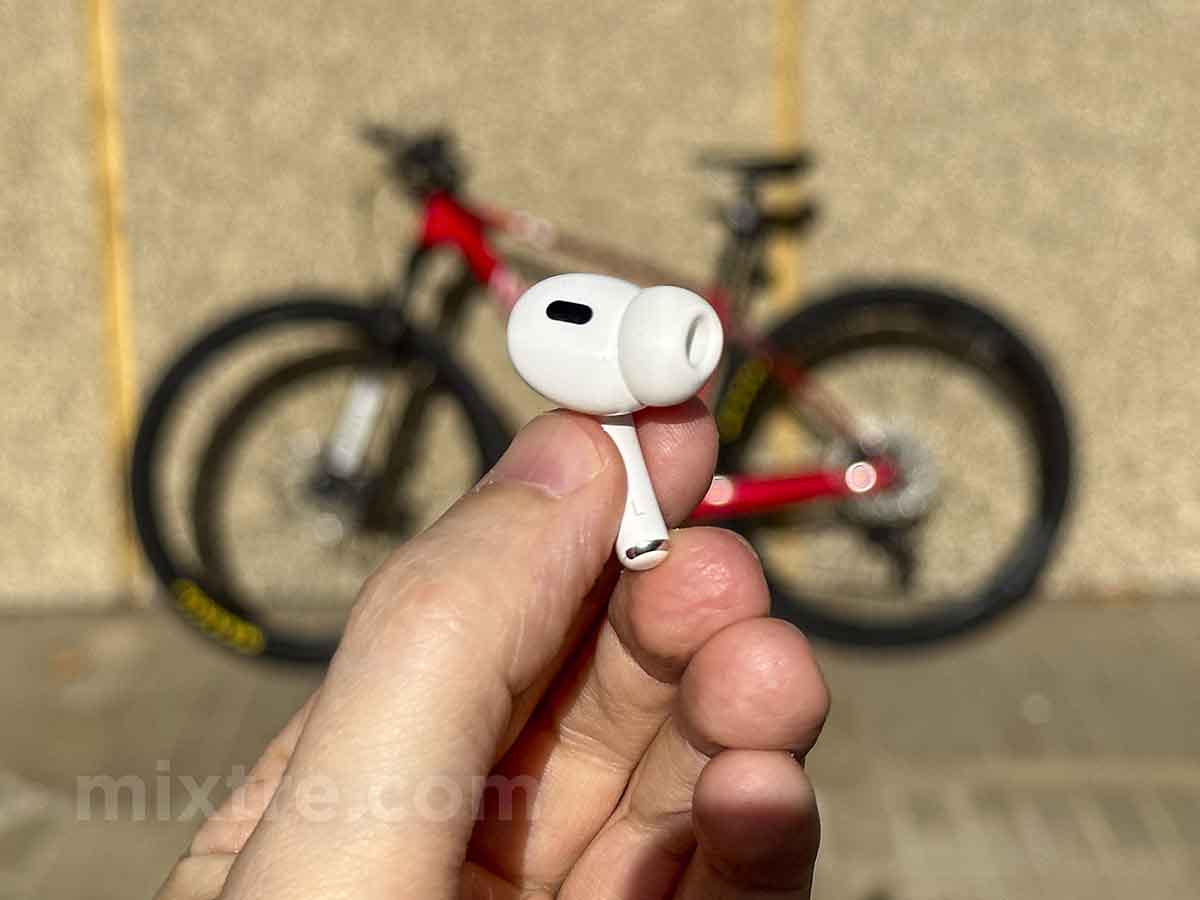
Safety tips for wearing AirPods while cycling
Look. I’ll be the first to admit that using headphones of any kind while riding a bike is not exactly a good idea. Especially if you ride in an urban environment like I do.
However, with a few precautions (and some common sense), it’s not as dangerous as you think it is. Here are all the things I’ve learned about riding safely riding with AirPods in your ears:
- For the AirPods Pro, use noise canceling mode at low volume instead of transparency mode at high volume. You’ll hear more ambient noise.
- Avoid listening to podcasts or audio books at anything faster than normal speed. Increasing the speed of playback will require more concentration. This is not what you want when you should be concentrating on the world around you instead.
- Use voice commands (via Siri) for simple tasks such as changing the volume or switching tracks. You may have to scream at her in louder environments (causing you to appear mentally unstable to anyone within earshot), but it’s safer than taking your hands off the handlebars.
- Avoid listening to complex music. For example, hard metal (such as Pantera – my fav) has so much going on that it’ll make it really difficult to hear ambient noise.
- Instead of cramming your AirPods into your ear as far as they will go, gently place them into the openings of your ear canal instead. This will allow more ambient noise to get in.
- Lower your expectations. Trying to form a perfect seal in your ears (in an effort to achieve the best sound quality possible) should not be your main objective. Your main objective is not to die. I mean, you can’t listen for approaching vehicles if you are unwilling to accept anything less than total perfection in the sound quality of whatever it is you’re listening to.

